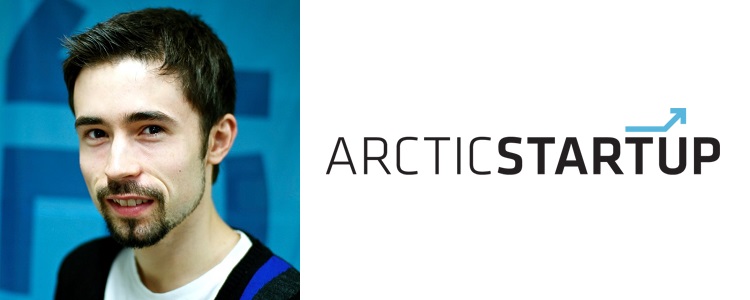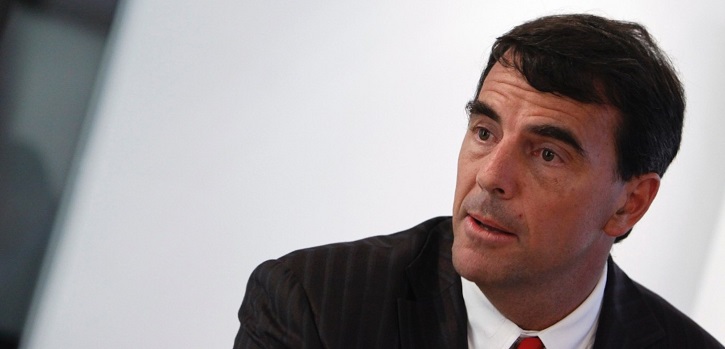Entrepreneurs, investors and business angels gathered in Helsinki to network and discover opportunities for investment. Cointelegraph spoke with speakers at Arctic15 conference about the latest trends in financial technology.
Platform for networking
As a platform for networking, Arctic15 is growing. Last year the event gathered 1405 participants, this year the number has grown to more than 1500. The platform has been very efficient in helping to establish business connections since the number of business meetings held in Arctic15 has now doubled.
Dmitri Sarle, CEO at Arctic Startup said to Cointelegraph:
“We’ve been organizing Arctic15 for a few years now, and every year we aim to advance the event up to the next level, by giving participants an opportunity to meet new people and start collaborations which would eventually lead to business projects. Arctic15 is not only about speeches and presentations, the most important thing here is an opportunity for startups and growth companies to establish business connections, to start doing business together, and, of course, explore opportunities for the funding of their projects.”

Tim Draper shared his business philosophy
Legendary Silicon Valley venture capitalist Tim Draper joined Arctic15 as one of the special guests and shared his experience and insights with entrepreneurs and investors.
Draper is a founder of thirty Draper venture funds, Draper University, Bizworld, and statewide initiatives to improve governance and education. He is also known for creating a method of viral marketing which has contributed to the successes of Hotmail and Skype.
Draper has heavily invested in Bitcoin, sharing a belief that one day it might become the pre-eminent store of value for investors.
Draper has also been interested in European business culture, touring Europe and visiting myriad business events. In 2014, Draper’s Fund, Draper Associates, invested in a Finnish cleantech startup Enevo, and it seems as if his interest in investing in the Land of a Thousand Lakes has grown. He was spotted visiting a Newcomer Bootcamp in Finland which aims to help refugees starting their own business.

Even though there weren’t many fintech companies present at the event compared to previous years, development of the field and latest innovations were among the hot topics discussed at Arctic15.
Less fintech startups this year
Dimitri Sarle explains to Cointelegraph:
“Each year the theme of our conference changes depending on trends, however, there is no narrow focus on any specific field. Finland and other Nordic countries are quite confident in developing financial technologies. Klarna, Holvi and PayMe were present at last year’s event, and a few Bitcoin startups participated. This year, however, their numbers decreased, and I honestly don't know why as the government has always shown a loyal attitude towards cryptocurrency startups, and we don't see any pressure from their side. This year fintech startups didn't demonstrate a high interest to participate”.
Nordic countries are quite confident and advanced when it comes to bringing innovations to the field of financial technologies.
Yobie Benjamin from token.io comments:
“There is a huge talent pool in Nordic countries when it comes to the development of financial technologies. We are all small countries here which is why we have to think globally from day one. I see a huge talent and vast potential here in the Nordics”.
Seeing some states give space for the development of Blockchain, or, on the contrary, limiting it, inevitably raises the question of where is the perfect place to start a company working around Blockchain?
Singapore’s paradise
Dusan Stojanovic from True Global Ventures says:
“I think Asia in general, and Singapore in particular is one of the best places as you can start a business within fintech as the regulatory framework is really friendly, plus it is easy to get an idea funded.”
An example of this is the Singapore fintech consortium, the largest fintech ecosystem builder, which aims to foster development, interaction and acceleration of the fintech ecosystem in Singapore and South-East Asia. According to Stojanovic, the consortium provides a platform for building synergy among market players, government bodies, financial institutions, corporates, investors and innovators.
Stojanovic explains:
“The most amazing thing here about getting funding for a fintech project is that it comes not even from a government side, but from a regulator’s side. It might seem like a dream, but this is reality. Reality, where partners believe that technology can bring added value to the financial industry. This is already a good enough reason for all of us to move to Singapore”.

Where is the potential for fintech?
Blockchain is often associated with Bitcoin. However, recently many companies have been focussing on the application of technology itself, seeing a vast potential for bringing changes in the way things work, and not only in the area of financial services.
Dusan Stojanovic said to Cointelegraph:
“All banks want to have process improvements, they are all laying off people and they all need to find better solutions to reach process improvements. I've never been interested in Bitcoin. I think that smart distributed ledgers like Ethereum have much more profound impact solving real process problems, including issues around money transfers, trading and asset management. That is the value of the technology behind cryptocurrencies, and not cryptocurrencies itself. Cryptocurrency might be an interesting project alone, but I am uncertain about its overall impact.”
Farooq Abbasi from Mosaic Ventures agrees on the broad opportunities for the application of Blockchain. He says that insurance technology might be one of the areas where certain advances can be observed. It is all about long lifetime payments, and a lot of processes could be done by machines rather than actuaries.
Abbasi says:
“We have been investing in distributed ledger technology companies which give software developers tools to build things on top of Blockchain. People equate Blockchain with financial services, however it can be used for identity and contracts. We want to invest into companies which are playing around with Blockchain technology not focussing only on financial services, but working with a wider variety of services”.
Jenny Fielding from Techstars shares this view. Techstars tend to invest in companies which use distributed ledger technology to work on finding solutions for issues not limited only to financial services, and to problems that don't yet exist.
For instance, they invested in Everledger which is using distributed ledger to make a mark on diamonds which can be registered and traced and checked later.
